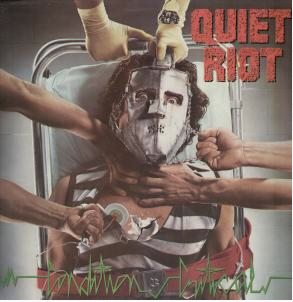 Indeed, a Quiet Riot is percolating in the heretofore boring ERP sector. I spotted Josh Greenbaum‘s post on “Enterprise Relationship Planning” this afternoon. In the Council, we have dredged up a 90s label– The Extended Enterprise— to categorize discussions about how our members are architecting their socio-collaborative initiatives to span partners in their supplier, distributor, and delivery chains. Included here is the massive momentum around Social CRM that is touching the customer in personal ways as well and reinventing what it means to be proactive and responsive to existing and potential buyers. One of our largest members recently made a platform selection choice based nearly exclusively on the chosen vendor’s ability to bridge to external collaborators while retaining the ability to keep the conversation secure behind the firewall. All of our members are somewhere in the adoption phase of evaluating these options. The confluence of all SaaS and enterprise legacy systems and social is coming… It’s not if, it’s when.
Indeed, a Quiet Riot is percolating in the heretofore boring ERP sector. I spotted Josh Greenbaum‘s post on “Enterprise Relationship Planning” this afternoon. In the Council, we have dredged up a 90s label– The Extended Enterprise— to categorize discussions about how our members are architecting their socio-collaborative initiatives to span partners in their supplier, distributor, and delivery chains. Included here is the massive momentum around Social CRM that is touching the customer in personal ways as well and reinventing what it means to be proactive and responsive to existing and potential buyers. One of our largest members recently made a platform selection choice based nearly exclusively on the chosen vendor’s ability to bridge to external collaborators while retaining the ability to keep the conversation secure behind the firewall. All of our members are somewhere in the adoption phase of evaluating these options. The confluence of all SaaS and enterprise legacy systems and social is coming… It’s not if, it’s when.
The unique thread that links the revitalization of all these mechanical, cumbersome, process-driven software “systems” is people. People with intelligence, with tacit knowledge, with “exceptions” expertise. We had a fantastic Council guru Q&A last week with Socialtext’s Ross Mayfield. Socialtext cites a whopping statistic that turns traditional ERP on its head, “An estimated 60 to 80% of an organization’s work is ‘exception’ oriented.” Squeezing the life (variability) out of a process is passe and will be replaced or supplementing with social data to improve its effectiveness, not detract from it. This is a revolutionary idea.
This sentiment is expressed by one of our members, Todd Weidman, who was discussing the rigidity of the Six Sigma process:
“In my experience in financial services, it’s used as a framework to eliminate as much process variation as possible. The processes become repeatable, follow a strict pattern, and ideally you reduce the cost of any transaction (and make it predictable, standard, and outsourcable). That’s fine if your building something to spec (manufacturing), but in any service-based industry, client needs demand many different types of solutions – think financial planning – there may be a number of different inputs for a customized solution. That, of course, requires collaboration between participants.”
Indeed, the future is about relationships. And relationships are about people, not stuff.
